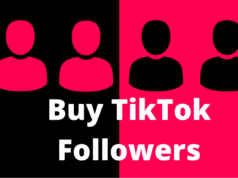
how do you market your small business? let’s find out from the chief marketing officer of the American marketing association
Steve Strauss: I’m really pleased to have a marketing expert with me today, Nancy Costopulos is the Chief Marketing Officer for the American Marketing Association, which is the largest marketing association in North America with over 30,000 members in 92 countries and Nancy, I love marketing so I’m really happy to speak to you today. Thanks so much.
Nancy Costopulos: Well, thank you for having us Steve. The American Marketing Association is really excited to be here and to help out small business everywhere.
Strauss: So one of the things I know about small business is that they never quite know, they learn one way to market, my experience is, a small business might learn one or two ways to market their business, and then, you know, run those into the ground. Because it works we’ll do that again and again, maybe bigger businesses do the same, I’m not sure, but what advice would you give a small business looking to branch out into new areas of marketing. How do you figure out what might works best, what new things to try, that kind of thing?
Costopulos: Now that’s a great question because every business really does want to grow and expand beyond what they’re doing. Most importantly, from my view, is that small businesses really need to understand what their customers needs are and at a very deep level. You know, if you have a business and you have a product or a service, it’s a very very good idea to go to the next level of customer understanding. What are their service needs? What are their channel preferences? How do they like to be communicated with?What kind of information do they need from you as a small business owner, regardless of whether it’s a product or service?
So understanding a customer at a very deep level and on a very individual level I think is really important to figuring out how you can expand either from a product or service perspective and making sure that you as a small business owner or self-employed individual are really keeping up with the trends of what’s happening in your industry moving forward. Because then, if you’re really thinking more to the future and a little bit ahead of the game and ahead of the curve, then you’re going to be in a much better position to find new opportunity to product your service offering. And also that’s a key differentiator from some others that might be in your competitive set.
Strauss: So that’s a great point and I’m wondering, you know, how might a small business figure out what their customers are reading or watching or listening to, what their preferences are, how they want to be communicated with. I assume the AMA might be able to help with that. And you can tell me if that’s true or not. Beyond that do you survey your own customers? What do you do?
Costopulos: Yeah, absolutely. Always take an opportunity. Every time you have a touch point with your customer. Whether you’ve got them on the phone or you’re in an email exchange with them, or if they happen to stop in to your retail location, it’s always a great opportunity at that point in time to try and gather information. Invite them to give you their email address and put them on an email list, keep them up to date about what’s happening with your business.
Making sure that you’re capturing pertinent information on them. The big thing about understanding customer needs is gathering this information and organizing it in a way that really helps your business. So, for example, if knowing your customers birthdate, for example, is an important aspect of your business, because you’re making greeting cards for them, or if you’re in the pet business for example, knowing the pets name and their birthdate and that kind of thing, so gathering that kind of information at the point of sale or any other time if you have a touch point I think is really important.
And then you can begin to capture that information and continue to track it over time. So data gathering is what’s really important in this area in terms of what customer needs are. Don’t miss a touch point, don’t miss an opportunity to gather a piece of pertinent information when you have the opportunity.
Strauss: That’s so interesting. You’re talking about really doing it on a very micro level, not just generally speaking what you’re customers are interested in but who that particular customer is and using that to market your business.
Costopulos: Yes. I mean that is really what some very sophisticated companies are working on now, is basically, you know, one-to-one marketing. Really trying to understand customers and their individual needs. And then, you know, you’ll begin to see trends among that information that you can then begin to work with. It’s impossible for everybody to understand every persons individual needs but trends emerge from that and then you can begin to see what your customers are really looking for and that’s worth it. It helps you make decisions on how to focus your time and energy in terms of going into business.
Strauss: So that’s really a great point. One of the things I love is when a small business can take what big business does and apply it to their own small business because big business has obviously a lot more resources and money and manpower behind them and they’ve already figured it out. So, for example, what you’re saying is, when you go online, and lets say I go on Amazon and I read a book or look at a book, next thing I know, right, things about that book or that title or that genre are popping up on my searches all the time because they know exactly what I am thinking about at that moment. So that’s kind of what you’re telling us that we should be doing as well, in any way that we can do it.
Costopulos: Right, and there’s kind of two ways to look at it, and this is the pretty direct and simple way to think about it. You know, one of those things is learning information about your customers from a demographic standpoint. For example, if you’re a retailer and you’re dependent on trying to figure out what geographic area are you actually pulling customers from. Well, then you need a zipcode, for example, and you need to be tracking the zipcode and you need to understand whether that’s contracting or whether that’s growing and where customers are coming from and how many drive-bys you are having and that sort of thing. So that demographic information is what’s really important.
And then the other side of it, which is harder to gather but I think very important for small business to understand, is to begin to think about behavioral data. For example, if I drop off my dry cleaning every Monday morning, getting a text from my dry cleaner on Sunday night with a 10% off coupon will remind me to get my dry cleaning when I’m supposed to. And that’s information that you are collecting when you’re doing a transaction. You know that you have done that transaction on Monday and you know the demographic profile of that customer. So those are the type of things that between the demographic information and behavioral tracking information, you know, those two types of things are place that small business can really advance.
Strauss: You know, you’re really good at this stuff, how you ever thought of going into marketing? Very valuable.
Costopulos: I’ve been doing it a few years (laughs)
Strauss: Hey, I’ve got a question for you that I get asked often and I really don’t ever quite know the right answer and maybe you do. And that is, how much money should I, as a small business owner person, spend, how much of my budget on marketing? Is there an answer to that question?
Costopulos: Actually there’s not. We get asked that question a lot as an organization so don’t feel bad about not having an answer. Now, small businesses obviously need to really watch those resources and make sure that the marketing dollars they are spending are being very effective. So, if as a small business you can’t sit back and say, you know what, I had at least some pretty good information that shows that that was effective, then maybe you want to rethink it and look at something that might be a little bit more measurable.
But the reason why there is no answer to that question is because there’s so many higher variable things that are going on in the marketplace and company size makes a huge difference. You know, even if I’m a large company and I spend millions on a media push of some kind or another then that percentage of marketing, again, that revenue is going to vary six months later when I’m doing something different. So, technically there’s no really good answer to that.
But then again I would also say for small businesses that try to identify things that are measurable, because then if you know that they’re working you have a lot higher confidence level of continuing to spend and you can increase your spend. And, you know, some things just aren’t measurable. But look at your website, look at your metrics, look at couponing. Those kinds of things definitely are measurable, so try to hold yourself to as much accountability as you possibly can with your marketing spend and then you’re going to feel better about it because you know it’s working.
Strauss: So where do you see things for marketing generally and for small business in particular? Is it all social media? Because we hear so much about social media and social media marketing. Are there other avenues? Is it mobile? What is it? Where do you think small businesses should be looking?
Costopulos: Yeah, that’s a great question. So two parts to that. What should small business be doing and involved with right now? And what’s really critical is the technology piece and the understanding of the technology opportunities that are going on right now? And so being internet savvy I think is really important. And having a website that is highly functional, accurate with information, and that really has search engine optimization I think is really important. And so that’s one thing that every small business should really be on top of. And you’d think that was an obvious but sometimes it isn’t. There are still a lot of small businesses that don’t even have a website.
Strauss: You know this for sure?
Costopulos: Yes, so that is really, really critical. And then looking at these mobile tactics. I mean, look at who our customers are now. The next generation of customers, the millennials are now, what, in their 20’s? And they have that cellphone, their smartphone, you know, in front of their face all the time. So you need to have your business where those customers eyeballs are located. So you really need to be, you know, thinking through what the mobile tactics are that you’re going to use and what’s really important. I think the biggest mistake that small businesses make in terms of mobile is that they’re not doing it yet. They really need to be thinking about this moving forward. Because the customers more and more and more are going to have, and rely, on that mobile device.
Strauss: I’m so glad that you said that because, I mean, if you just think about your habits or my habits or anyone listening, what are your habits, well, we’re all on our mobile device now. I was just taling to the CEO of web.com last week, his name is David Brown, he’s said every one of their websites they create now is mobile ready and it’s mobile ready not because there’s a demand for it in the small business they create websites for but because they know that’s where the future is, that’s where everything is headed. So, if the American Markting Association is telling us this and web.com is telling us this then I would say everyone needs to know mobile is where you have to start to put your time and energy. You gotta learn it, whether you want to or not, you have to learn how to market on mobile, right?
Costopulos: Absolutely. And it doesn’t have to be that big of an adventure. I mean, SMS and text messaging for example, a lot of small businesses are doing that now very effectively and I don’t know about anyone else but I love getting text reminders about my dentist appointment. Those are welcome to me because we’re all busy and we need to keep track of that stuff.
And also, I would encourage them to think about whether apps are important, and that might be an alternative type of thing that they would want to think about creating. Apps are best when you can create frequency with your customers. Whether thats updating your menu of your restaurant, or updating your e-newsletter or coupons or whatever. So i think apps, SMS, and overall having that kind of a mobile process and strategy is really important.
And if I can talk to the future piece of it I think what we’re going to be seeing in the future for small businesses is going to be localization in the media scene. And that is the ability to immediately be relevant to a customer in the future. If I’m walking by a coffee shop I can have a coupon pop into my inbox and say, stop in at the coffee shop and there’s a hot latte waiting for me, because they know I like lattes and they know I’m in the area. So when you think about the mobile technologies that we have and then localizing that to a very narrow, narrow scope and delivering immediate relevancy to a customer it really is exciting and what I think we’re going to be seeing in the future.
Strauss: Nancy, could you tell us as we’re wrapping it up here how could the American Marketing Association help a small business?
Costopulos: The American Marketing Association has a lot of resources. Our website Ama.org, has thousands of articles and it has lots of tools and templates. For example we have a section on the website where you can get a social media template planning tool or other types of media planning tools and all types of things like that. So many, many, many assets on our website can help small businesses. And also utilize your associations. Utilize organizations like ours, and there are others as well, to take a look and see what best suits you. The professional association has tons of information for small businesses and can really help out.
Strauss: Well, that’s fantastic and I will just say that I know that the American Marketing Association is a fantastic group and if anybody needs to know more about marketing you are the go to place, I think. We really appreciate your time and thank you so much for being with us today.
Costopulos: Thank you Steve, it was a real pleasure.








